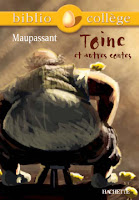Language is constructed through form and content however, according to Bakhtin it is a mistake to study the two of them separately because it leaves behind the social, political an philosophical baggage that language invariably carries. Furthermore, language cannot be understood only as a centralized set of rules that serve as norm for everybody, the creation of a unitary language works as to ensure a maximum of mutual understanding, but since it exists within a context that is anything but homogenous (heteroglossia) and where centrifugal forces are constantly pushing for decentralization, stratification is an inevitable risk. That stratification can be in terms of lingusitic dialects, socio-ideological languages or the language of certain groups. In the end, every word (utterance) that is ever written or spoken is affected by these opposite forces that saturate them of meaning.
The existence of different meanings within a single word gives cause to dialogue that relates it directly to the object it “describes”. Throughout Bakhtin’s text, dialogue appears as an essential aspect of language, dialogue between sociopolitical eras, historical contexts; dialogue as the main substance of discourse that enables languages not only to coexist but to intersect/juxtapose.
This brings us to the literary face of languages. According to Bakhtin languages exist in the creative consciousness of people who write novels, writers use certain and many languages intentionally and create what he denominates as “double voices”. It is interesting that the proper use of double voicedness is for Bakhtin the only way to create artistic images in the literary world. When Bakhtin talks about poetry he says that it only utilizes cannonized language (that is also affected by heteroglossia but every time it changes it is “officialized” as poetical language) which as a consequence renders superficial the use of the double voice. Double voice is only real when it plays consciously with the baggage (for lack of a better word) of the languages and creates a dialogue between them, not only rhetorically or as a figure of speech.
With this in mind, there are a few questions that automatically arise: Is poetry not an artistic form for Bakhtin? Should poetry be analyzed by stylistics and lingusitics like a rhetorical text? Moreover, if the artistic value of a novel lies in the skillful use of various languages, what is the literary worth of those narrative texts that master the unitary language?
In the end I think the idea of stylistics studying language in a way that takes into consideration the changing nature of it and the obvious power that context has over it is of utter importance. However, I don’t completely understand how this condition of the language is applied to the artistic aspect of literature and if it is as determining as Bakhtin ponders it to be.



